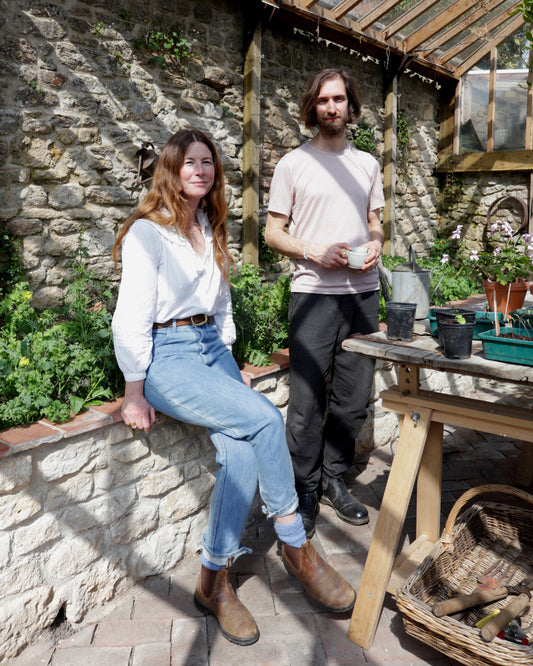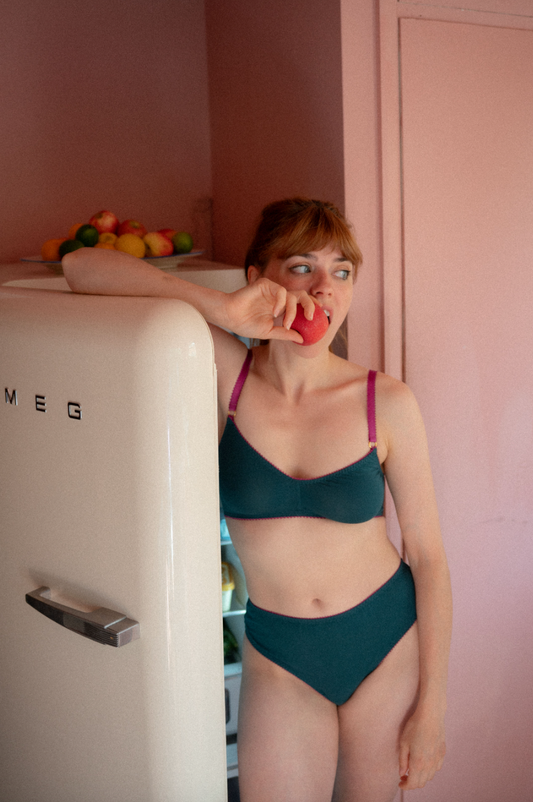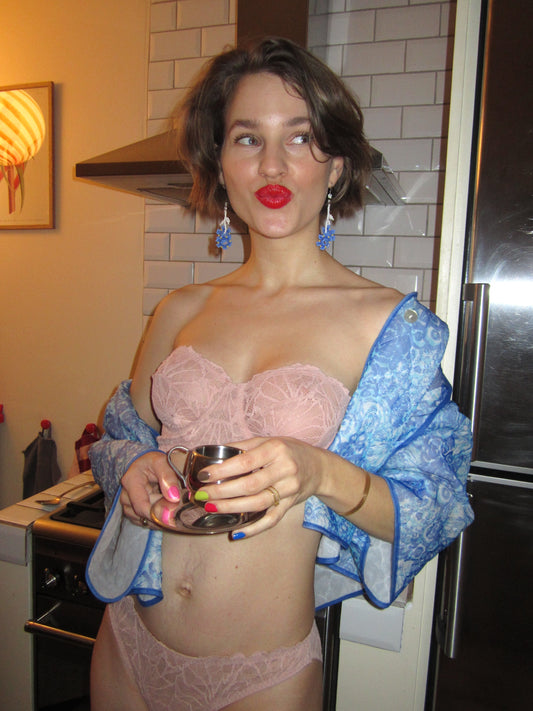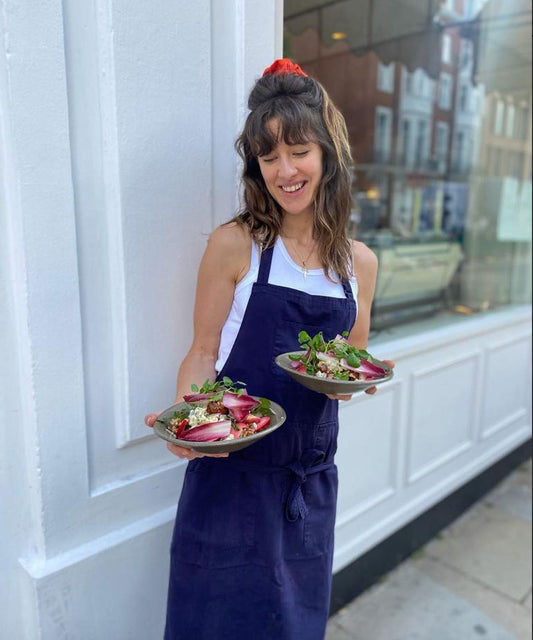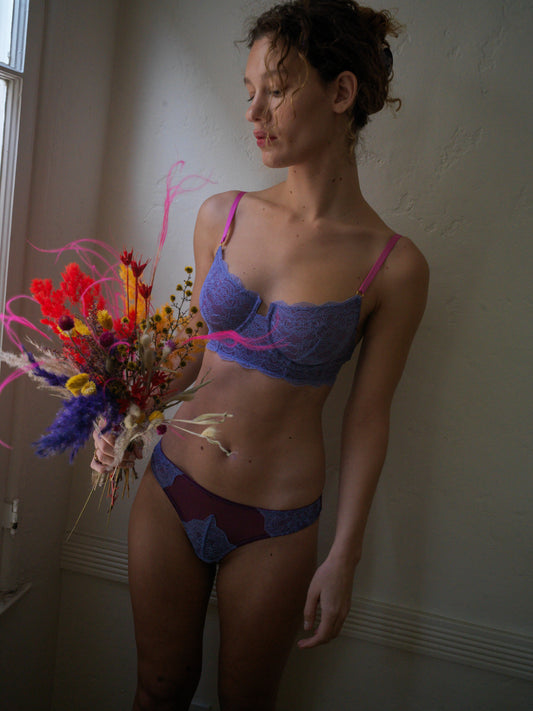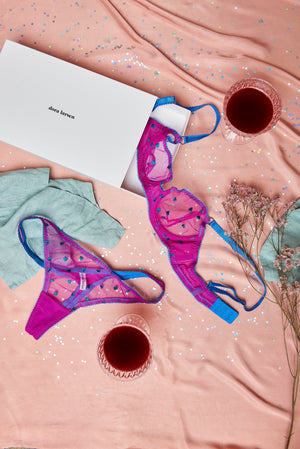This week in our DL Reflections series, we spoke with writer, event producer and non-profit founder Rosie Viva. We talk about her journey since being diagnosed with Bipolar disorder, what inspired her to write her book ‘Completely normal and totally fine’ and how she manages her mental health day to day.
Tell us about you, and what you do.
Hey! I’m Rosie. I am a writer, event producer, non profit founder and Bipolar UK ambassador.
Your new book, ‘Completely normal & totally fine’ is launching in a few days time. Can you tell us more about why you decided to write this book?
I decided to write ‘Completely Normal & Totally Fine’ after reading a lot of books about Bipolar around the time of my diagnosis. While these books were all incredibly helpful for learning more about what I was managing, I found the tone quite overwhelming and frightening at the age of 21. Skip to now, six years later, I have become very passionate to talk about Bipolar in a candid tone. For young people going through the motions of a diagnosis, I hope my book will give light relief (using humour throughout) , while also making them feel less alone in what they are experiencing.

What made you feel inspired to speak out about your bipolar disorder in such an open and honest way?
If I’m honest, it wasn’t immediate to want to do so! The first two years of my recovery I would have done anything to be ‘normal’ and go back to life before my diagnosis. However, such a traumatic experience can also give you a huge perspective on life. What I found important after recovery felt so different to before. My relationships all became extremely genuine, and I developed a feeling of wanting to give back in some way. The first podcast I ever recorded speaking about Bipolar amassed hundreds of listens within 24 hours. It hit home just how many young people were searching for someone to speak about how they feel, and so the messages I receive on a weekly basis are the reason why I keep feeling inspired to speak about this.
What do you feel is most misunderstood about the experience of having bipolar disorder?
I think hypomania is a state of Bipolar definitely most misunderstood... just because nobody speaks about it! It is a natural high someone with Bipolar will experience. However, in my case it is often triggered by stressful situations rather than good news/something exciting. It’s almost as though it is my brain's way of protecting me from difficult situations. For example, when I experienced loosing a loved one to suicide, I went into a high state for a few months.I remember my understanding of Bipolar before my diagnosis and I am certain I had no idea that a high could be a sign of a good or bad period in someone living with the diagnosis’ life.

What actions or attitudes do you take in managing your mental health day to day?
First port of call - medication. Even as someone who enjoys being healthy and caring for myself, both the highs and lows of the illness are too extreme to manage without help. Bipolar depression is very delusional and physical, Bipolar mania is very dangerous due to psychosis and lack of touch with reality. My antipsychotic is called Quetiapine, and it helps me manage everyday without slipping into the most extreme elements of my illness.
Running - Hooray! I have run for ten years now, and I find long distance running particularly helpful to clear my mind and help me feel in control during both high and low weeks. It is also a great way to expend energy during hypomania in a way which is good for your body.
Social interaction - I am a firm believer that spending time with friends more than the average person is the reason I have found so much stability in recent years. Getting out of my head, and into my friends' lives, makes me feel extremely connected and fulfilled.
Diet - Like anyone in their 20s, this is ever changing based on my social plans. However, Bipolar has been proven to be positively affected by a high protein diet so I try to centre my cooking around this philosophy.. It definitely makes a difference to my energy levels!
What has been the biggest life lesson that you’ve learnt from 2024, that you’re bringing with you for 2025 and beyond?
In 2024 I learnt that letting go of control can bring so much happiness. I started saying yes to things which have triggered me, whether it be nights drinking a lot of alcohol or travelling more often (jetlag is a huge cause of hypomania and depression). Losing control forces you to realise that you can handle situations you have worried about, and taught me more about myself in the process. I want to keep exposing myself to things I am scared of and making sure that my diagnosis doesn’t hold me back from what everyone else my age is experiencing.

What have you got coming up for the rest of the year?
This year, I am really hoping to write more in different formats. Whether it’s for TV, or music journalism, I’m trying to be ambitious in a space I love to be in.
Where can we buy your book?
My book is available on Amazon as well as in all major bookstores.
Rosie wears the Nico underwire bra, the Sienna triangle bra, the Lana bralette and the Marta underwire bra.
Find Rosie here.
Shop Rosie’s book here.
Shop Rosie’s edit here.




